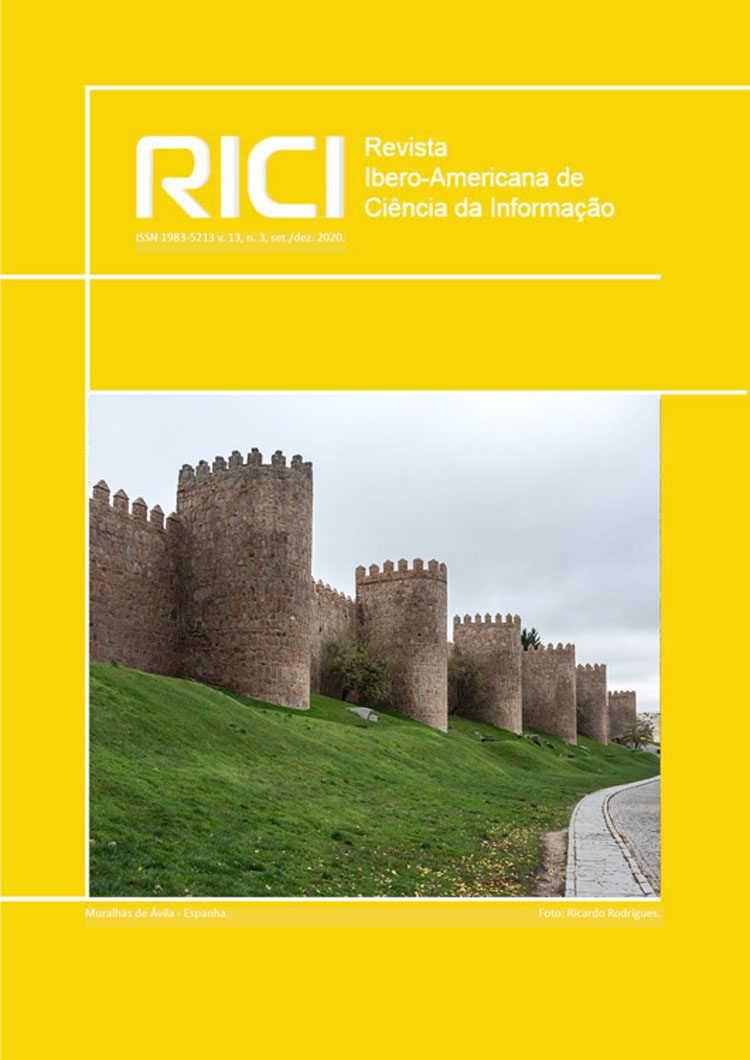Rock the Internet Blues! A critical view of the evolution of the Internet from civil society
DOI:
https://doi.org/10.26512/rici.v13.n3.2020.33041Keywords:
Internet, Virtual community, Social network, Information literacy, Global knowledge society, Information ethics, EgomationAbstract
Starting from an analysis of the differences between virtual communities and social networks, a critical description is developed of how the Internet has evolved in the last 20 years towards a situation marked by the end of dialogue and the obsessive promotion of visions centered on egocentric interests. The historical singularity from which this situation was triggered is identified in Google's decision, in the early 2000s, to make advertising the focus of its business strategy and how it transformed, with the help of others Technology Giants (TG), users in user-products and then agents of their own marketing, with the use of their egomation. The paper investigates the role played by civil society specialized in global information society issues, where it has presented little resistance to the changes that have arisen along the way. In addition to representing a divorce with the shared initial utopias, this evolution is a threat with important repercussions in the non-virtual world, including the weakening of the democratic foundations of our societies. After showing some dystopian perspectives, some concrete guidelines are proposed to change course, highlighting the most important measure: that of declaring a digital emergency that contemplates massive education programs to insert citizens in the ethical challenges, the potentialities and risks of the global knowledge society and especially in what information literacy means.
Downloads
References
- D. Pimienta, “At the Boundaries of Ethics and Cultures: Virtual Communities as an Open Ended Process Carrying the Will for Social Change (the "MISTICA" experience)”. In: “Localizing the Internet. Ethical Issues in Intercultural Perspective”, Capurro, R. & al. (Eds.). Schriftenreihe des ICIE Bd. 4, München: Fink Verlag, 2005. http://www.funredes.org/mistica/castellano/ciberoteca/tematica/icie (versión en español) (Última visita 15/07/2020)
- J. G. Koomey, “Estimating total power consumption by servers in the US and the world”, Stanford University, Feb. 2007 http://www- sop.inria.fr/mascotte/Contrats/DIMAGREEN/wiki/uploads/Main/svrpwrusecompletefinal.pdf (Última visita 15/07/2020)
- Y. Eshet-Alkalai, and E. Chajut, "Change over time in Digital Literacy", Cyberpsychology & Behavior, V. 12, N. 10, 2009.
https://www.openu.ac.il/personal_sites/download/yoram-eshet/EshetandChajut2009-Changes-in-digital-literacy.pdf (Última visita 20/07/2020)
- D. Pimienta, “Digital divide, social divide, paradigmatic divide”, 1st edition of Journal of ICT and Human Development, 2009. http://funredes.org/mistica/castellano/ciberoteca/tematica/brecha_paradigmatica.pdf (versión en español) (Última visita 15/07/2020)
- Bernard Stiegler, “Le Blues du Net”, 2013, Blog “Réseaux” del periódico francés Le Monde. https://web.archive.org/web/20131102102731/http://reseaux.blog.lemonde.fr/2013/09/2 9/blues-net-bernard-stiegler/
- S. Zuboff, "The secrets of surveillance capitalism", Frankfurter Allgemeine, March, 2016 - https://www.faz.net/aktuell/feuilleton/debatten/the-digital-debate/shoshana-zuboff-secrets-of-surveillance-capitalism-14103616.html (Última visita 15/07/2020)
”“ L.G: Rodríguez Leal. “La Disrupción de las Gigantes Tecnológicas ”“ Emergencia Digital”, enero 2020. https://www.academia.edu/41701222/La_Disrupcio_n_de_las_Gigantes_Tecnolo_gicas_-_Emergencia_Digital (Última visita 15/07/2020)
- H. Chneiweiss, Entrevista en la Recherche no557, mars 2020, page 70. (en francés)
Downloads
Published
How to Cite
Issue
Section
License
Copyright (c) 2020 Daniel Daniel Pimienta, Luis Germán Rodríguez Leal

This work is licensed under a Creative Commons Attribution 4.0 International License.
Copyright Notice
Authors who publish in this journal agree to the following terms:
- Authors retain copyright and grant the journal right of first publication with the work simultaneously licensed under the Creative Commons Attribution License 4.0, allowing the sharing of work and recognition of the work of authorship and initial publication in this journal.
- Authors are able to take on additional contracts separately, non-exclusive distribution of the version of the paper published in this journal (ex.: distribute to an institutional repository or publish as a book), with an acknowledgment of its initial publication in this journal.
- Authors are permitted and encouraged to distribute their work online (eg.: in institutional repositories or on their website) at any point before or during the editorial process, as it can lead to productive exchanges, as well as increase the impact and citation the published work.
















